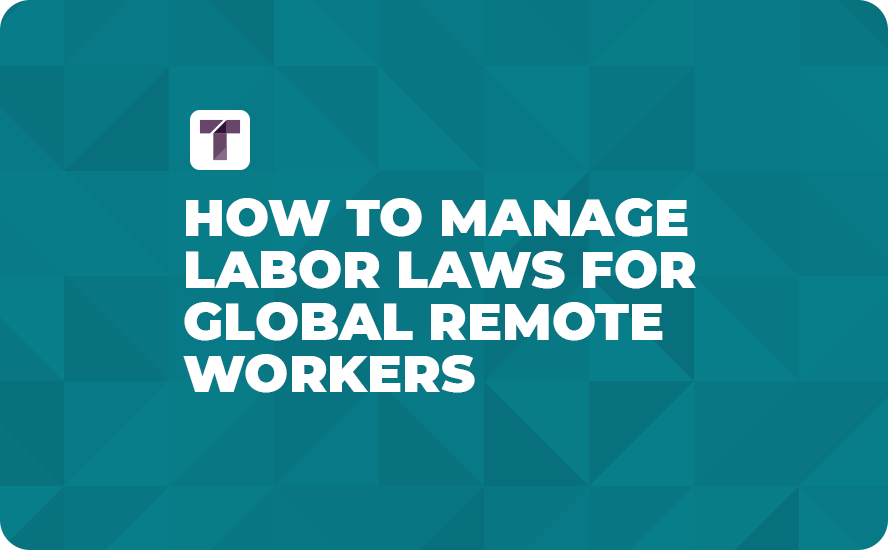The rise of remote work has opened up extraordinary opportunities for businesses to access a global talent pool. Companies worldwide are embracing the benefits of remote teams, from cost savings and increased productivity to improved employee satisfaction. However, successfully managing a global remote workforce requires more than just providing laptops and setting up video conferencing tools. One of the most crucial, and often overlooked, aspects is ensuring compliance with labor laws across multiple jurisdictions.
Understanding the Complexities of Cross-Border Employment
Labor laws are inherently country-specific, designed to protect the rights of workers and regulate employment practices within a particular nation’s borders. When you employ remote workers worldwide, you become subject to the labor laws of each country where your employees reside. These laws can cover a broad range of issues, including:

- Employment Contracts—Requirements for written contracts, mandatory clauses, and language stipulations.
- Working Hours and Overtime—Regulations on standard workweeks, overtime pay premiums, and restrictions on excessive overtime.
- Leave Entitlements—Policies for annual leave, sick leave, maternity/paternity leave, and other forms of leave.
- Minimum Wage and Compensation—Country-specific minimum wage standards and rules governing bonuses and benefits.
- Termination Procedures—Permissible grounds for termination, severance pay requirements, and notice periods.
- Data Privacy—Regulations related to the collection, storage, and use of employee data.
- Taxation—Withholding and remittance of income tax and social security contributions, including double taxation agreements (if applicable).
The Challenge of Staying Compliant
The sheer complexity of labor laws across different countries poses a significant challenge for businesses with global remote workforces. Regulations can change frequently, and staying up-to-date demands time and resources. Failure to comply can lead to costly penalties, legal disputes, and damage to your company’s reputation.
Strategies for Effective Labor Law Management
Here are key strategies to help you successfully manage labor laws for your global remote workers:
- Location, Location, Location—The first step is determining where your remote worker is physically located, as this is the primary indicator of which jurisdiction’s laws apply. Be aware that an employee’s nationality might differ from their place of residence.
- Seek Expert Advice—Partner with legal professionals and HR consultants who specialize in international labor law and the specific countries where your remote workers are located.
- Draft Clear Contracts—Ensure that employment contracts comply with the local laws of each employee’s jurisdiction. Include clauses addressing termination, dispute resolution, and the governing law.
- Leverage Technology—Use HR management platforms that can track employee locations, automate tax calculations, and alert you to changes in regulations.
- Partner with an Employer of Record (EOR)—An EOR, like Truss, can simplify compliance immensely. EORs become the legal employer of your remote workers, handling payroll, HR, and ensuring adherence to labor laws in each jurisdiction.
The Benefits of an Employer of Record (EOR)
An EOR offers several advantages for businesses managing global remote workforces:
- Streamlined Compliance—EORs have in-depth expertise in international labor laws and handle the complexities of compliance on your behalf.
- Reduced Risk—By entrusting payroll and HR administration to an EOR, you mitigate the risks associated with non-compliance.
- Cost Savings—EORs can save you significant costs associated with establishing legal entities in multiple countries.
- Scalability—EORs enable you to rapidly hire and onboard remote workers in new countries with minimal administrative hurdles.
Harnessing the Power of Global Remote Teams
Remote work is the future. By understanding labor law complexities and utilizing the right tools and partners, you can build a thriving global remote workforce that drives business success. With an EOR like Truss, you gain the agility to attract top talent from around the world while minimizing the risks and complexities of international employment.
Let Truss help you simplify your global expansion and empower your remote teams to achieve extraordinary results.


